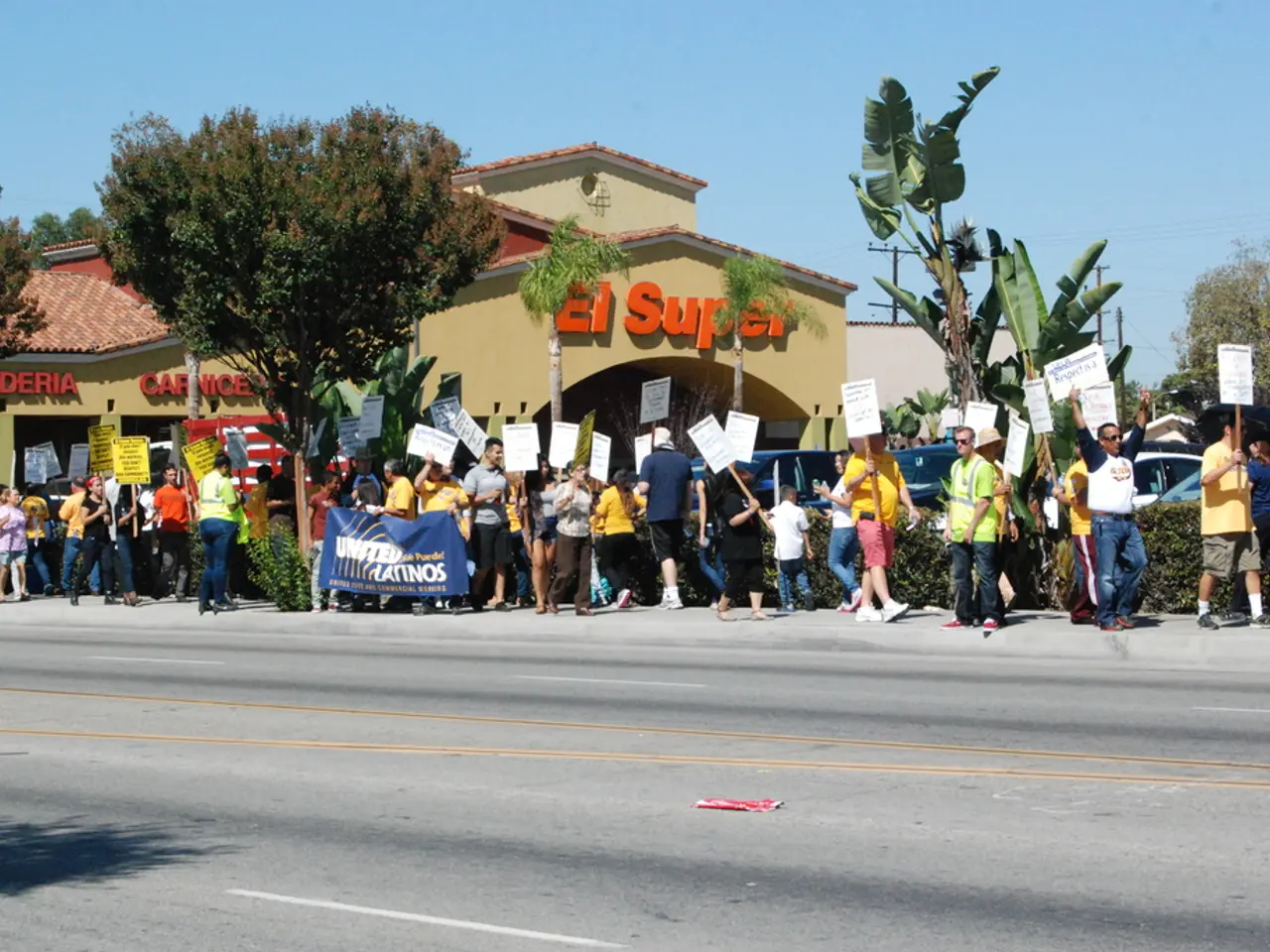Rallying public and community groups to influence decision-making on artificial intelligence regulations
In Spain, a vibrant network of civil society organizations and movements, including IA Ciudadana, is making a significant impact on social, environmental, and democratic rights. This network, which also includes organisations working on social justice, antiracism, digital rights, and other issues, is influencing the tone and topics of public and media debates during electoral campaigns.
One of the most notable achievements of this network is the successful influence on the Ministry of Labour to approve the 2022 'Riders' Law'. This legislation recognises delivery riders as employees, ensuring salary and welfare protection, rights in terms of working time, and the right of workers' councils to request company information on automated decision-making systems affecting working conditions.
The process of building new political power is as important as driving policy change. Effective public engagement should include the creation and strengthening of civil society networks. IA Ciudadana, for instance, has engaged, connected, and mobilized people with specific and localized issues, advocating for the democratization of AI and collaborating with policymakers.
Rather than the singular 'the public', we use 'publics' which are plural, dynamic, and can mobilize around shared interests. Working towards meaningful public participation in AI means building political power and ecosystems with people and groups that are often at the margins, especially those from minoritised and low-income communities. Effective network-building can engage and empower marginalized people in a deep and long-lasting way, and gain legitimacy to represent them.
Spain’s model of including urban and rural municipalities in pilot AI projects demonstrates the value of wide-based participation from various community actors, which strengthens networks and resource sharing for grassroots organizations. This approach can extend to monitoring digital rights and human rights impacts effectively.
Broader lessons in the digital rights and human rights context emphasize forming networks that unite governments, civil society, media, platforms, and citizens to ensure transparency, inclusion, and accountability in digital governance. This includes managing challenges like misinformation and electoral integrity—a collective responsibility that grassroots networks like IA Ciudadana can contribute to through advocacy and technology monitoring.
In the context of Spain's last government, combining digital rights advocacy with other agendas, like labor rights, allowed groups to successfully influence other political actors to back meaningful policy change. The first Spanish conference on AI and human rights, organised in 2020, led to the formation of the Algorights community, which aims to advocate for citizen participation in AI-related policies.
Another leading voice highlighting the risks of inappropriate use of AI is Algorace, a multidisciplinary team with an antiracist and feminist approach. Algorace has established itself as a leading voice, contributing to policy changes such as the first non-legislative initiative on the uses of facial recognition and biometric data at borders in southern Spain. Algorace has published comprehensive information about AI and its impact on racialised people and low-income communities, releasing resources like 'An introduction to AI and Algorithm Discrimination for Social Movements' in accessible and non-academic language.
Combining AI advocacy with advocacy in other policy areas, such as social justice issues or the environment, can facilitate activists' access to policymakers. The Observatory of Work, Algorithm and Society and Workers Info Exchange have designed a successful advocacy campaign based on the 'Riders' Law' to influence the position of the European Parliament on the recently adopted European Platform Work Directive.
Together, these lessons stress that effective network building blends technological innovation with inclusive democratic participation, multi-actor collaboration, and political awareness to support grassroots efforts in AI, human rights, and digital rights in Spain. The author(s) of the piece do not necessarily reflect the views of the website.
[1] These examples and insights are drawn from related AI civic initiatives and broader democratic integrity frameworks relevant to grassroots digital rights networks. If you need, I can supplement with additional general best practices for network building in this sector beyond Spain.
- Artificial intelligence (AI) policy and legislation in Spain are increasingly being influenced by grassroots networks, such as IA Ciudadana, which advocate for democratization of AI and collaborate with policymakers to protect the rights of delivery riders and other marginalized communities.
- The success of these grassroots networks in Spain, like the Algorights community and Algorace, lies in their ability to combine AI advocacy with other policy areas, like labor rights or social justice issues, to gain legitimacy, engage and empower marginalized people, and facilitate access to policymakers.




